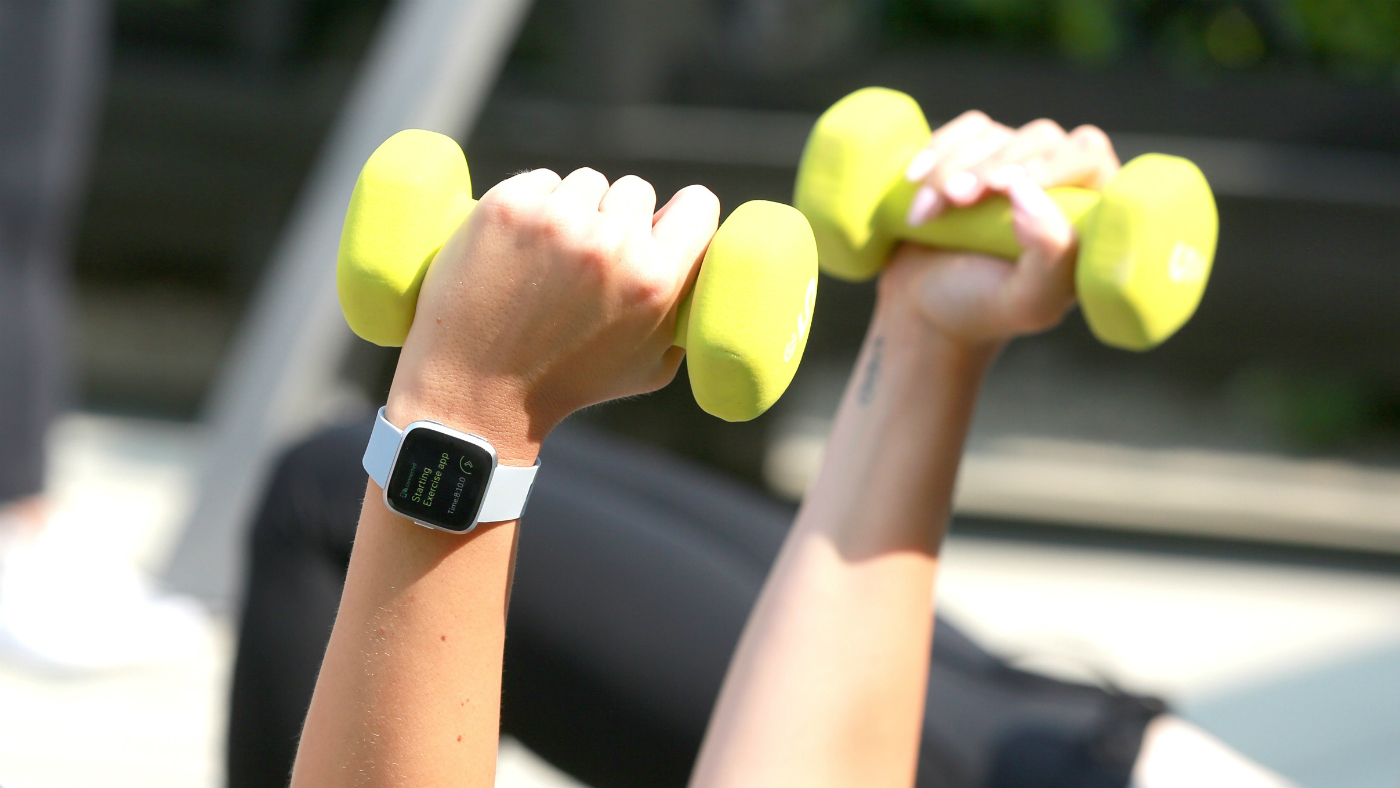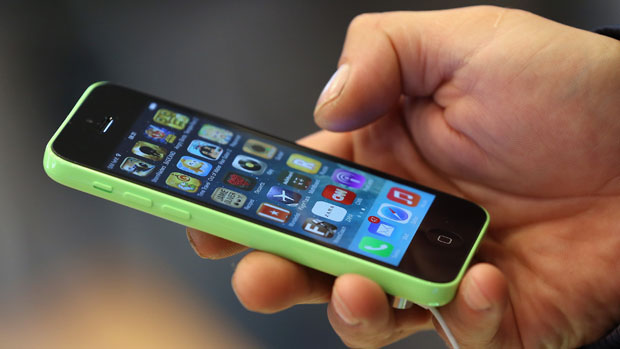Fact check: do fitness trackers help you lose weight?
The Week examines whether wearable tech really can aid slimmers

A free daily email with the biggest news stories of the day – and the best features from TheWeek.com
You are now subscribed
Your newsletter sign-up was successful
From wristbands to smart running shoes, wearable technology is transforming the way we monitor our physical activity.
But are fitness trackers really helping us reach our weight-loss goals? The Week looks at the research.
What do the experts say?
The Week
Escape your echo chamber. Get the facts behind the news, plus analysis from multiple perspectives.

Sign up for The Week's Free Newsletters
From our morning news briefing to a weekly Good News Newsletter, get the best of The Week delivered directly to your inbox.
From our morning news briefing to a weekly Good News Newsletter, get the best of The Week delivered directly to your inbox.
Fitness trackers automatically log the number of steps the wearer has taken, their heart rate, how many calories they have burned, and even the quality of their sleep.
Having an accurate daily record of physical activity can help open people’s eyes to how little exercise they’re getting, says Dr Seth Martin, a cardiologist at John Hopkins University in Baltimore, Maryland.
“It gives people information and empowers them to start making changes,” he says. “And often, their activity level was not something they were paying attention to before they started tracking.”
But experts caution that fitness trackers should not be viewed as magic bullet for weight loss.
A free daily email with the biggest news stories of the day – and the best features from TheWeek.com
“Trackers are a reliable measurement of our activity, but we can’t rely on them completely,” Andrew Lane, professor of sport psychology at the University of Wolverhampton, told the BBC.
“We can’t expect just to buy one and that's it - some of the responsibility sits with us too. We still have to get off that sofa and complete those 10,000 steps a day.”
If used inappropriately, fitness trackers may even start to have a negative psychological effect, Lane argues.
“What if we start consistently not reaching goals set for us by them? Ultimately, it would lead to us feeling demotivated - the opposite effect they are supposed to have,” he warns.
–––––––––––––––––––––––––––––––For a concise, refreshing and balanced take on the news agenda, delivered to your inbox, sign up to the WeekDay newsletter–––––––––––––––––––––––––––––––
What does the research say?
A large-scale trial at the University of Pittsburgh investigated whether using wearable technology helped people lose more weight than slimmers following standard weight-loss programmes.
The study, published in 2016, tracked more than 470 overweight or obese people between 2010 and 2012.
All of the participants were asked to diet and advised to increase their physical activity, but only half were given a fitness tracker, six months into the study.
At the end of the trial, the participants who were given fitness trackers lost an average of 7.7lb (3.5kg), while those who didn’t have access to the technology lost an average of 13lb (5.9kg).
Researchers also found that the participants who used the trackers were no more physically active than those who did not.
Based on these results, the authors concluded that the devices “may not offer an advantage over standard behavioural weight-loss approaches”.
In a separate study, researchers at the Duke-NUS Medical School in Singapore tracked 800 office workers to see whether using fitness trackers improved their health.
Participants were assigned to one of four groups – a control group that had no tracker, a group with a tracker, and two other groups that were given trackers as well as different financial incentives.
Over the course of the year-long study, which began in 2013, the subjects who wore fitness trackers increased the amount of physical activity they did by an average of 16 minutes per week.
However, the authors found no evidence that the devices promoted weight loss or improved blood pressure or cardiorespiratory fitness, either with or without financial incentives.
Researchers also noted that nearly half of all participants with fitness trackers stopped wearing them after six months.
These results are “pretty embarrassing for companies that manufacture fitness devices - not to mention disquieting for the people who wear them,” says Robbie Gonzales, senior writer at Wired.
But he argues that this doesn’t mean you should ditch your fancy new fitness tracker.
“The fact is, most existing studies on fitness trackers […] hinge on devices that are several years old,” Gonzales says.
“And while peer-reviewed research on the latest wave of workout gadgets is still sparse, signs suggest newer wearables are finally becoming more addictive.”
What’s the consensus?
The available data suggests that fitness trackers do little to promote weight loss and may only result in moderate increases in physical activity.
However, these studies were carried out using older fitness trackers and further research is needed to determine the efficacy of the latest devices.
–––––––––––––––––––––––––––––––For a concise, refreshing and balanced take on the news agenda, delivered to your inbox, sign up to the WeekDay newsletter–––––––––––––––––––––––––––––––
-
 What are the best investments for beginners?
What are the best investments for beginners?The Explainer Stocks and ETFs and bonds, oh my
-
 What to know before filing your own taxes for the first time
What to know before filing your own taxes for the first timethe explainer Tackle this financial milestone with confidence
-
 The biggest box office flops of the 21st century
The biggest box office flops of the 21st centuryin depth Unnecessary remakes and turgid, expensive CGI-fests highlight this list of these most notorious box-office losers
-
 Fact check: behind the 5G conspiracy theories
Fact check: behind the 5G conspiracy theoriesIn Depth Scientists dismiss any link between mobile technology and coronavirus pandemic
-
 Fact check: do fertility apps work?
Fact check: do fertility apps work?In Depth Advert claiming that Natural Cycles contraceptive app is ‘highly accurate’ banned by UK watchdog
-
 Fact check: do mobile phones cause cancer?
Fact check: do mobile phones cause cancer?In Depth The Week looks at the conflicting evidence and asks whether a scientific consensus can be reached
-
 Running app Polar Flow exposes locations of spies and military personnel
Running app Polar Flow exposes locations of spies and military personnelSpeed Read Investigators say workout data can also be used to identify staff at classified facilities such as MI6 and White House
-
 Fact Check: The truth about mental health apps
Fact Check: The truth about mental health appsIn Depth The NHS recommends them but can the new technology really improve our mental well-being?
-
 MyFitnessPal vs Google's Im2Calories: which is the best calorie counter app?
MyFitnessPal vs Google's Im2Calories: which is the best calorie counter app?The Week Recommends The five best calorie counters on the market to help support your diet and fitness plans